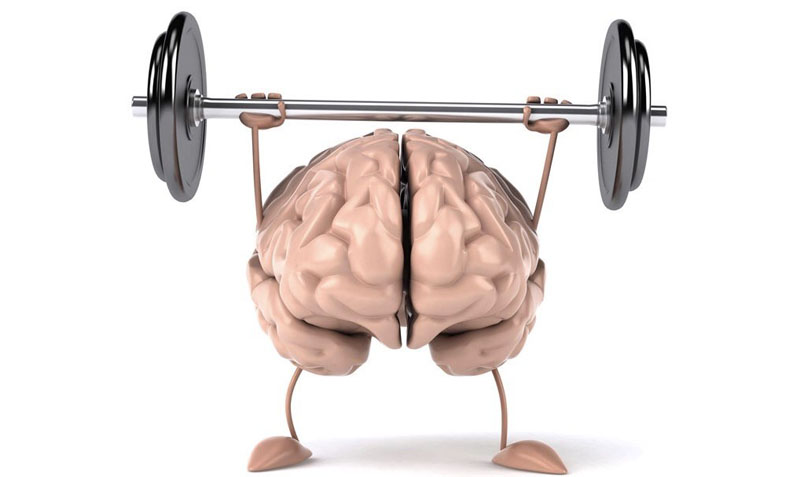Seeing those little ones, jumping, blabbering, running all around, and having oh-so-peaceful sleep seems like a dream, right?
We, adults, complicate every bit of a thing for us. We complain of having terrible back ache but don’t take out time to have a stroll. We get anxious about overwhelming thoughts, but don’t take a minute to have a deep breath.
Little by little, such habits became routine that wrecks not only physical health but our mental well-being too. Did you know that in just 10 days of inactivity our brain starts to lose its cognitive functioning?
Yes, you heard it right! Now, think of your routine. It’s not only an uncooperative boss that makes your life difficult. Your uninspired will to not move your body can be the culprit, too.
If this isn’t enough for you to realize, then a look at these signs that indicate how lack of exercise can seriously affect your mental health:
-
No Movement, No Fatigue, No Sleep
Lack of exercise leads to serious problems like insomnia and sleep deprivation, preventing the body from removing toxins at night, especially those in the brain. Poor sleep cycle or poor sleep quality affects your psychological state and increases the odds of mental health issues. So, even if after slogging your brain for 9-10 hours you can’t sleep at night, understand that your body cries for some physical attention.
Even if you exercise at least 3 times per week, it can regulate the circadian rhythm that regulates the sleep-wake cycle. Nevertheless, exercise lightens your daily levels of stress too. From hitting the gym or going for a walk, or doing meditation to grooving to Zumba beats, do anything that you love.
After breaking some sweat, you will feel relaxed yet tired resulting in a good night’s sleep. And the next morning, you will be refreshed and rejuvenated ever than before!
-
Anxiety and Depression kick in
Exercise is mood-enhancing! It may trigger feel-good chemicals in your brain that help alleviate symptoms of depression. Another insightful fact, regular exercise diminishes your chances to get overweight, which again lowers signs of depression. Also, it fights unnecessary weight gain, (a common side effect of anti-depressants).
Lack of movement and staying indoors release negative emotions that increase the chances of falling for overthinking, anxiousness and depression. Just think of a time, when you wholeheartedly spent an hour jogging, stretching, and cycling and that kept you active throughout the day. Not that, you feel more fresh, happy, and peaceful. So, if it can happen for a day, it can happen for a lifetime.
-
Evokes self-esteem issues
Self-esteem is a powerful factor in everyone’s overall well-being. Not working on yourself deprives you of enjoying a sense of accomplishment. Living the same routine every day doesn’t give a joy what you can achieve in just completing your target of steps. A sedentary lifestyle prevents a lot of adults from exercising and increases the risk of poor self-esteem.
When you escalate isolation, the will to socialize decreases too much extent. Your weight might increase, you lose interest in talking to people, start questioning your worth, get insecure about looks, and so on. On the other hand, having physical activity promotes a positive body image and influences your mind toward adopting more positive thoughts.
-
Moody, Irritability, Agitation – Decreased Happiness
Not moving your butt makes you fuss about everything! Going out even for a walk and enjoying the sights that nature offers can be refreshing. Vitamin D deficiency is proven to adversely impact serotonin regulation, a brain chemical (or neurotransmitter) responsible for regulating mood and sleep cycle. When health experts encourage you to go out early in the morning, they want you to absorb the natural form of Vitamin D (through sunlight), which is beneficial for both physical and mental well-being.
Sitting for a prolonged period in one place makes you feel burnt out. The tasks which take an hour or two to get completed can take up to 4 to 5 hours without giving satisfactory results. At times, you don’t feel motivated enough to start your work, all these are signs of irritability, lack of motivation, or agitation that can be improved while keeping yourself physically active.
Involving your mind, body, and heart in some fun or responsible activity keeps you away from negative thoughts. Try walking, cycling, swimming, pilates, yoga whatever you enjoy doing! Make exercise an everyday activity. On days when you don’t feel like going out, move around the house, maintain your plants, wash the car, or clean your space. In any way, active people have a higher level of enthusiasm, pleasure, and vitality than the ones living a sedentary lifestyle.


Recent Comments